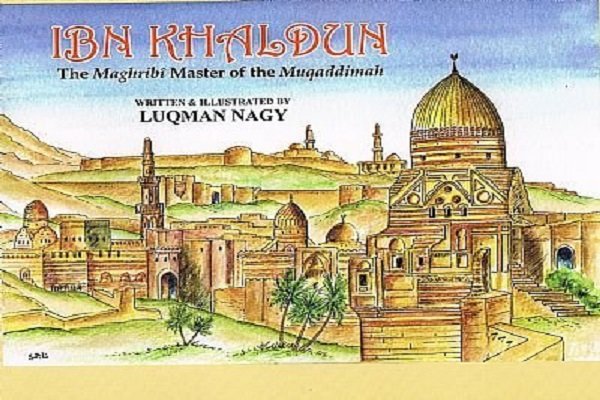The full text of his article is as follows:
Dr. Franz Rosenthal, was a Jewish man and scholar of great wisdom and repute. I happened to take a couple classes of his at Yale University in the US in the early 1970s. Though deceased now, he was the top Western scholar of Islam, Islamic history and Semitic languages in his day, and also one lucky Jew who as a young man before World War 2 managed to exit Nazi Germany, but many of his elder relatives who never escaped in the 1930s died.
Rosenthal knew what caused the rise and fall of Islamic (or most any) polity. He was a translator in to English, for one thing, of Ibn Khaldun’s magnificent and groundbreaking 14th century historical theories about the rise and fall of political dynasties summarized in the famous work called the “Muqaddimah”. Rosenthal laid out Islamic history and Islam itself for his students at Yale in great detail, and lovingly. He considered Islam, as Muslims do, the “final” revelation of the monotheistic tradition earlier established by Judaism and then Christianity, and he did indeed consider it an improved manifestation of the tradition and Arabic, the language of the Qu’ran, the most expressive of languages. Had he not been born Jewish, I gathered from knowing him, he’d have been Muslim. He had a profound, enduring respect for Islam and its achievements over the centuries since Muhammad’s death in the seventh century.
Given the demonization of Islam by some in the West, and particularly in Washington, for NO other reasons but that the Islamic Republic,, to cite the prime example, officially abhors and rejects Western imperialism and its demands for control and hegemony in the Middle East, as well as Iran’s valid rejection of Zionism and its cruelty to the Holy Land’s natives, the Palestinians, one has to be concerned.
Another attempt to take down a country by the US and allies, as happened with Iraq and Libya and Syria especially, could well be catastrophic and lead to a third world war. Given this potential threat, anyone sympathetic with Iran’s posture and empathetic about the difficulties of economic sanctions and other hostile moves, as one such as Dr. Rosenthal (I am reminded here) certainly would be if he were alive, suggests a desire, anyway, that whatever internal discontent there may be in Iran be minimized as much as possible, and NOT by forced suppression.
If in fact there are reasons for internal discord in Iran, those of us in the West who admire Iranians and the country’s accomplishments over many centuries, feel obliged to hope fervently that the current Iranian government will correct whatever matters that exist that may be causing discontent, especially among young Iranians, who are Iran’s future.
One big reason for this hope is that the US or any country supportive of US, hostility be deprived of reasons to condemn Iran’s governing authorities, even as Iran rightly maintains its rejection of imperialism and Zionism.
Consider, for example, how bad things have become in the US with this microcosmic anecdote: At a local school board meeting a teacher in a mid-sized city in the US engages in a conversation with a school broad member, but the conversation is interrupted by a policeman. The young teacher wants to know why the board members are voting themselves a huge pay raise but nothing for teachers? Then the police show up, the young woman is slammed to the floor and put in handcuffs and then carted off to jail. The teacher did nothing wrong and broke no laws, but someone did not want her challenging the school board at all. This in fact is an accurate picture of what is widespread in the US today: it is corruption, obviously, backed by force. It involves entrenched authorities serving themselves rather than their constituencies. And these are the seeds of mass discontent and maybe, eventually, revolution, which under the right circumstances can happen in the US, just as it did in Iran in 1979.
Having never been in Iran, I do still know that there is wide gap between the haves and the have-nots. I know that the economy has been weak and there is high unemployment, maybe 30 percent, among young people. This is also true in the US, where the percentage of the population is not so skewed to young people as in Iran. In the US, real reform is badly needed. This is also probably true in Iran. Can the current government leaders in either the US or Iran be flexible enough, and unselfish enough, to permit real reform, and even to allow protest as a normal occurrence in a more open society? No one knows yet. But one thing is certain: by failing to allow evolution and reform in either country, however different the two cultures may be, instability can be expected and at some point events might spiral out of control.
It was Ibn Khaldun’s genius in the 14th century (that Franz Rosenthal at Yale recognized), that identified what Ibn Khaldun called “‘asabiyya”, an Arabic would that roughly translates into the term “group solidarity” as the defining foundation of a strong, unified society. Every Islamic regime Ibn Khaldun studied that had fallen apart (and there were several in the North Africa of his day centuries ago) or become weak, had lost its “group solidarity” because leaders failed to address the needs of the governed and the society had become fragmented, even though it remained Islamic to the core. One only needs to reduce this to families: families are strong only to the extent that members support one another and cohesion among members remains strong, because fair dealing exists and internal corruption has been reduced or eliminated. Proper ongoing reform, as evolving circumstances warrant, is a vital task in virtually any country on earth.
Republished from: Tehran Times

























Your Comment